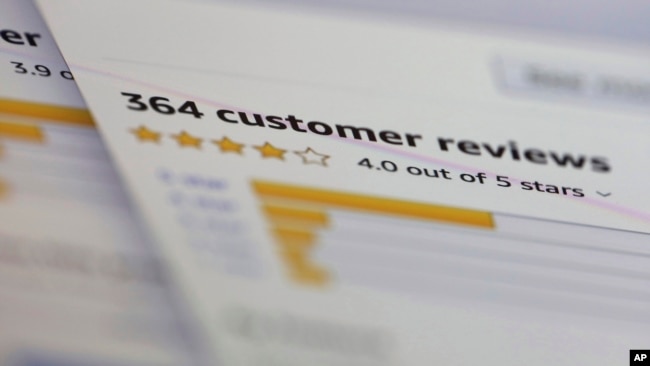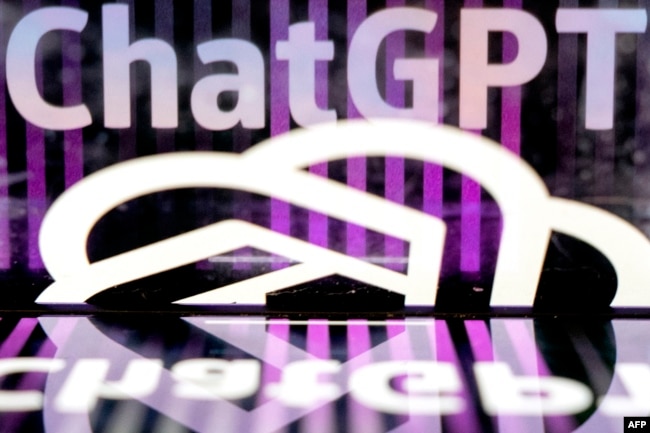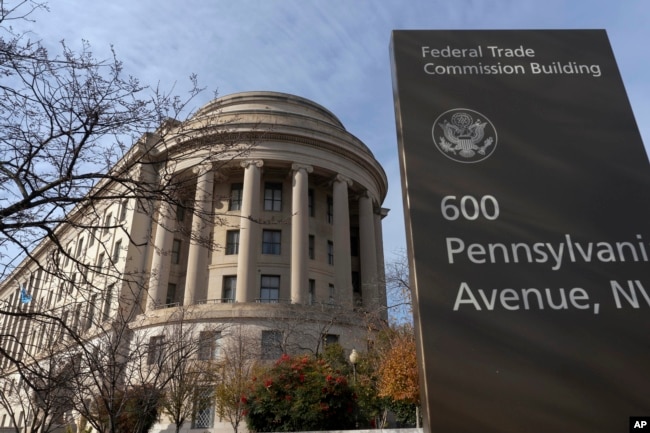商品購入する際、会社のH.P.確認します。商品詳細、成分表示、素材を確認します。金額に見合うのか否か。加えてレビュー、見ます。
極端に専門用語が使われていたり、商品と記載内容が合わない時は無視します。SNSも。
でも、でもなんですね〜
世の中、信じるものは・・・?
AI Tools Often Used for Fake Product Reviews
Artificial intelligence (AI) tools that permit people to produce online reviews have put sellers, service providers and buyers in unfamiliar territory, public protection groups and researchers say.
False, or fake, reviews have long appeared on many popular websites such as Amazon and Yelp. The reviews are often traded on private social media groups between fake review dealers and businesses willing to pay. Sometimes, businesses get good reviews in exchange for offering buyers rewards such as gift cards.
But AI tools, popularized by OpenAI’s ChatGPT, permit people to produce reviews faster and in greater numbers, technology industry experts say.
Where are AI-generated reviews appearing?
Fake reviews are found across a wide range of industries, from e-commerce and travel to services such as home repairs, medical care and music lessons.
The Transparency Company is a technology company and public protection group that uses software to detect fake reviews. The company said it started to see AI-generated reviews appear in large numbers in mid-2023. The reviews have increased quickly ever since.
For a recently released report, The Transparency Company examined 73 million reviews in three areas: home, legal and medical services. Nearly 14 percent of the reviews were likely fake. The company expressed a “high degree of confidence” that 2.3 million reviews were partly or entirely AI-produced.
Last September, the Federal Trade Commission (FTC) took legal action against the company behind an AI writing tool and content producer called Rytr. The FTC accused Rytr of offering a service that could pollute the marketplace with fake reviews.
The FTC, which banned the sale or purchase of fake reviews in 2024, said some of Rytr’s buyers used the tool to produce hundreds and perhaps thousands of reviews. The reviews appeared in support of garage door repair companies, sellers of copied designer handbags and other businesses.
What are companies doing?
Major companies are developing policies for how AI-generated content fits into their systems for removing fake reviews. Some companies already employ special programs and investigative teams to find and remove fake reviews. Still, the companies are giving users some ability to use AI.
Spokespeople for Amazon and Trustpilot, for example, said they would permit buyers to post AI-assisted reviews as long as the buyers represent their true experience. Yelp has taken a more cautious approach, saying its rules require reviewers to write their own reviews.
The Coalition for Trusted Reviews, which Amazon, Trustpilot, Glassdoor, Tripadvisor, Expedia and Booking.com launched last year, said that even though people may put AI to illegal use, the technology also presents “an opportunity to push back against those who seek to use reviews to mislead others.”
The FTC’s rule banning fake reviews, which took effect in October, permits the agency to fine businesses and individuals who take part in fake reviews. Tech companies hosting such reviews are protected from the penalty. This is because they are not legally responsible under U.S. law for the content that outsiders post on their websites.
Tech companies, including Amazon, Yelp and Google, have sued fake review dealers they accuse of selling fake reviews on their sites. The companies say their technology has blocked or removed a large number of suspect reviews and suspicious accounts. However, some experts say they could be doing more.
“Their efforts thus far are not nearly enough,” said Kay Dean, a former federal criminal investigator who runs a public protection group called Fake Review Watch. “If these tech companies are so committed to eliminating review fraud on their platforms, why is it that I, one individual who works with no automation, can find hundreds or even thousands of fake reviews on any given day?”
Finding fake reviews
Consumers can try to find fake reviews by watching out for a few possible warning signs, researchers say. Overly good or bad reviews are suspect. Highly specialized terms that repeat a product’s full name or model number are another possible clue.
When it comes to AI, research done by Balázs Kovács, a Yale professor, has shown that people cannot tell the difference between AI-created and human-written reviews. Some AI detectors may also be fooled by shorter texts, which are common in online reviews, the study said.
However, there are some AI clues that online shoppers and service seekers should keep in mind. Panagram Labs says reviews written with AI are often longer, highly structured and include “empty descriptors.” Empty descriptors include general phrases and attributes or characteristics. The writing also often includes overused phrases or opinions like “the first thing that struck me” and “game-changer.”
Words in This Story
review -- n. an evaluation or assessment of a product or service
opportunity -- n. a good chance for progress
mislead – v. to lead in a wrong direction or into a mistaken action
sue -- v. to seek justice from someone by legal process
fraud -- n. intentional changing of truth in order to get another person to part with something of value
automation – n. automatically controlled operation of a system by and electronic device that takes the place of human labor
clue -- n. an idea; a piece of evidence that leads one toward a solution
detect-- v. to find or discover the true nature of something; to discover something
偽の商品レビューによく使われるAIツール(和訳)
オンライン・レビューの作成を可能にする人工知能(AI)ツールは、売り手、サービス提供者、買い手を不慣れな領域に追い込んでいると、公的保護団体や研究者は指摘します。
アマゾンやイェルプのような多くの人気サイトには、以前から正確でない、あるいは偽のレビューが掲載されています。偽のレビュー販売業者とお金を払う意思のある企業との間で、民間のソーシャルメディア・グループ上で取引されることがしばしばあります。たまには、企業が購入者にギフトカードなどの特典を提供する代わりに、良いレビューを得ることもあります。
しかし、OpenAIのChatGPTによって普及したAIツールは、人々がより速く、より多くのレビューを作成することを可能にしている、とテクノロジー業界の専門家は言います。
AIが作成したレビューはどこで見られるのか?
偽のレビューは、eコマースや旅行から、家の修理、医療、音楽レッスンなどのサービスまで、幅広い業界で見られます。
トランスペアレンシー・カンパニーは、偽のレビューを検出するソフトウェアを使用するテクノロジー企業であり、公共保護団体でもあります。同社によると、AIが作成したレビューが大量に表示されるようになったのは2023年半ばからだといいます。それ以来、レビューは急速に増加しています。
トランスペアレンシー・カンパニーが最近発表した報告書では、家庭、法律、医療サービスの3分野で7300万件のレビューを調査しました。その結果、14%近くが偽のレビューでした。同社は、230万件のレビューの一部または全部がAIによって作成されたものであるとの”高い確信”を表明しました。
昨年9月、米連邦取引委員会(FTC)は、RytrというAIライティング・ツールとコンテンツ・プロデューサーの会社に対して法的措置をとりました。FTCは、Rytrが偽のレビューで市場を汚染する可能性のあるサービスを提供していると非難しました。
2024年に偽レビューの売買を禁止したFTCによると、Rytrの購入者の一部はツールを使って数百、おそらく数千のレビューを作成したと言います。レビューは、ガレージドアの修理会社、コピーされたデザイナーハンドバッグの販売者、および他のビジネスを支持するように表示されました。
企業は何をしているのか?
大手企業は、AIが作成したコンテンツが、偽のレビューを削除するためのシステムにどのように適合するかについての方針を策定しています。一部の企業はすでに、偽のレビューを発見し削除するための特別なプログラムや調査チームを採用しています。それでも、各社はユーザーにAIを利用する能力を与えています。
例えば、アマゾンとトラストパイロットの広報担当者は、購入者が本当の体験を表現している限り、AIが支援するレビューの投稿を許可すると述べました。Yelpはより慎重なアプローチをとっており、自社の規則ではレビュアーが自分でレビューを書くことを求めています。
Amazon、Trustpilot、Glassdoor、Tripadvisor、Expedia、Booking.comが昨年立ち上げたCoalition for Trusted Reviewsは、人々がAIを違法に利用する可能性があるとしても、この技術は”レビューを利用して他人を惑わmisleadそうとする人々に反撃する機会”にもなると述べています。
10月に施行されたFTCの偽レビュー禁止規則は、偽レビューに参加した企業や個人に罰金を科すことを認めています。このようなレビューを主催しているテック企業は、罰金から保護されています。というのも、外部の人間が自社のウェブサイトに投稿した内容については、米国の法律では法的責任を負わないからです。
アマゾン、イェルプ、グーグルなどのテック企業は、偽のレビューを自分たちのサイトで販売しているとして、偽のレビュー販売業者を訴えていますhave sued。各社は、自社のテクノロジーによって、疑わしいレビューや不審なアカウントを大量にブロックまたは削除したと述べています。しかし、専門家の中には、もっとできることがあるはずだと言う人もいます。
「これまでの彼らの努力はほとんど十分とは言えません」 と元連邦犯罪捜査官で、フェイク・レビュー・ウォッチという公的保護団体を運営するケイ・ディーン氏は言います。「これらのハイテク企業がプラットフォーム上のレビュー詐欺を排除することに尽力しているのであれば、オートメーション化されずに働いている一個人の私が、ある日突然、何百、何千もの偽レビューを見つけることができるのはなぜでしょうか?」
偽のレビューを見つけること
消費者は、いくつかの警告サインに注意することで、偽のレビューを見つけることができると研究者は言います。過度に良いレビューや悪いレビューは疑わしいのです。製品のフルネームや型番を繰り返すような専門性の高い用語も、可能性のある手がかりclueです。
AIに関しては、イェール大学のバラーシュ・コヴァーチ教授が行った研究によると、AIが作成したレビューと人間が書いたレビューの違いを人は見分けられないと言います。また、AI検知器AI detectorsの中には、オンラインレビューによく見られる短い文章に騙されるものもある、と同研究は述べています。
しかし、オンラインショッパーやサービスを求める人が留意すべきAIの手がかりもあります。Panagram Labsによると、AIを使って書かれたレビューは長く、高度に構造化され、”空の説明文 ”を含むことが多くあります。空の説明文には、一般的なフレーズや属性や特徴が含まれます。また、”最初に衝撃を受けたこと”や”ゲームチェンジャー” のような使い古されたフレーズや意見もよく含まれます。


